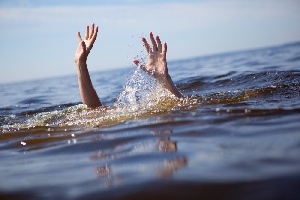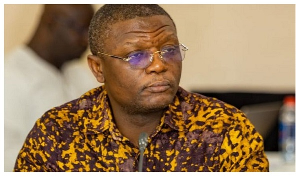A recent study conducted by the School of Public Health at the Kwame Nkrumah University of Science and Technology (KNUST) has revealed that Ghanaian males are four times more likely to drown than females.
The research, conducted over a three-year period from 2019-2022, further shows that males aged 15 to 35, followed by children aged between 0 to five years, are the worst affected victims, constituting 40% of the 1,370 drowning fatalities that occur annually in Ghana.
Cara Aidoo, a Data Collection Supervisor with the School of Public Health at Kwame Nkrumah University of Science and Technology (KNUST), expressed concerns over the increasing rate of age-adjusted death associated with drowning.
As of 2020, data published by the World Health Organisation (WHO) indicated a drowning rate of 2.4 per 100,000 population.
However, recent figures have shown an increase to 4.4 per 1000,000 population.
In an interview with the Ghanaian Times, Cara Aidoo said a majority of the deaths occurred along river bodies, with major ones occurring at recreational centres, particularly beaches, pools and in wells.
She further voiced concerns about the lack of reporting on drowning incidents.
“People don’t report drowning incidences and that is a worry. There are many places that people are drowning on a daily basis. You hear many of these stories in the communities yet people are unaware of the need to report them,” she lamented.
Cara Aidoo called for the enforcement of existing bye-laws that ensure individuals adhere to and follow safety protocols.
“Everyone must be involved. Parents and caregivers must supervise their children. Teachers must be involved. Drowning borders on education, health, public safety, transportation, employment, law enforcement etc.
"We have bye-laws that should look at whether there is a lifeguard by a pool, whether people are on water bodies with jackets, whether drains and wells are well covered but all these bye-laws are not being enforced and we are losing lives,” she added.
MAG/AE
General News of Friday, 26 July 2024
Source: www.ghanaweb.com

















